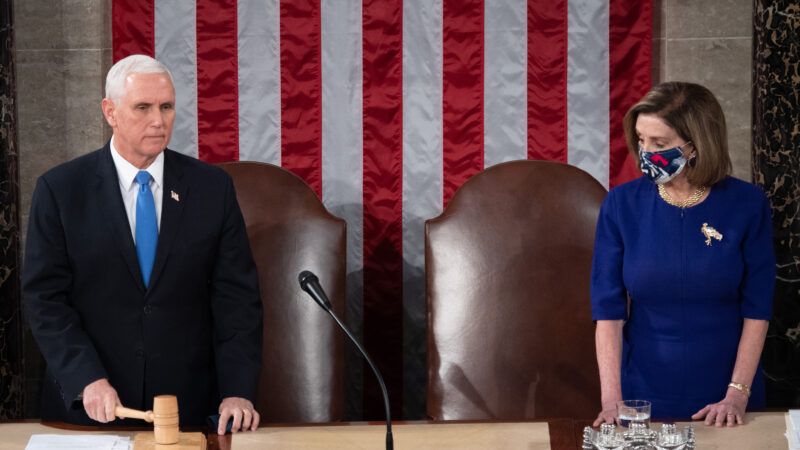The Democrats' Voting Bill Is Dead, but Electoral Reform Isn't
The defeat of Democrats' voting rights legislation could lead to meaningful progress on election integrity.

A defeat for Democratic voting rights legislation could lead to meaningful progress on electoral integrity.
On Wednesday, a Senate effort to amend filibuster rules in a way that would allow Democrats to pass voting rights legislation with fewer than 60 votes was defeated, despite President Joe Biden voicing support for that course of action earlier this month. And without the rule change, the voting bill itself is doomed as well, as Republicans stand fully in opposition.
In a speech in Atlanta, Biden seemed to imply that anybody who did not support his party's bill, the Freedom to Vote Act, was "on the side of" historical segregationists like George Wallace and Bull Connor. He issued a direct warning to lawmakers: "History has never been kind to those who have sided with voter suppression over voters' rights. And it will be even less kind for those who side with election subversion. So, I ask every elected official in America: How do you want to be remembered?"
Under that argument, a failure to pass the bill would seem to be devastating to the cause of voting rights. But in the wake of the bill's defeat, there is a new and potentially more promising development.
Lawmakers in both the House and the Senate are considering modifications to the Electoral Count Act, an 1887 law that details when and how Congress counts and certifies the votes cast by presidential electors. The act dictates that the president of the Senate (the U.S. vice president) reads out the votes from each state, which Congress then counts before certifying the winner. While the vice president's role seems largely ceremonial, with no ability to alter an election's outcome, the act does not say so explicitly. Former President Donald Trump and his acolytes seized upon this vagueness when they tried to pressure then–Vice President Mike Pence to either decline to certify the results, or else simply pick a different slate of electors in enough swing states to tip the election to Trump.
Now, lawmakers from both parties are considering reforms to the Electoral Count Act in both the Senate and the House. CNN reports that six Republican senators are planning talks on the law "with the aim of clarifying the process for counting electoral votes." Sen. Joe Manchin (D–W.Va.), a moderate whose opposition helped sink the filibuster reform, told CNN that reforms to the Electoral Count Act could help reduce the type of confusion that ultimately led, in part, to the false hopes that prompted hundreds of Trump supporters to violently storm the Capitol on the day of the election certification vote.
Meanwhile, the Committee on House Administration released a report detailing potential alterations to the act. The report includes suggestions such as a higher threshold for senators or representatives to register objections to vote counts, and giving states more time to adjudicate disputes before certifying their electoral votes. The Cato Institute's Andy Craig has previously made many of the suggestions that lawmakers featured in their report and has written extensively on Electoral Count Act reform, which he says is "urgently needed to avoid future constitutional crises."
Despite Democrats' urgent messaging about the need for voting rights legislation, their proposed bills are unlikely to achieve meaningful reform. They do not attempt to solve the issues that led rioters to try to undermine the results of the 2020 presidential election. The most direct way to confront those issues is to address the actual law that was used to attempt to undermine the transfer of power. Hopefully, Republicans and Democrats can at least agree on that much.
